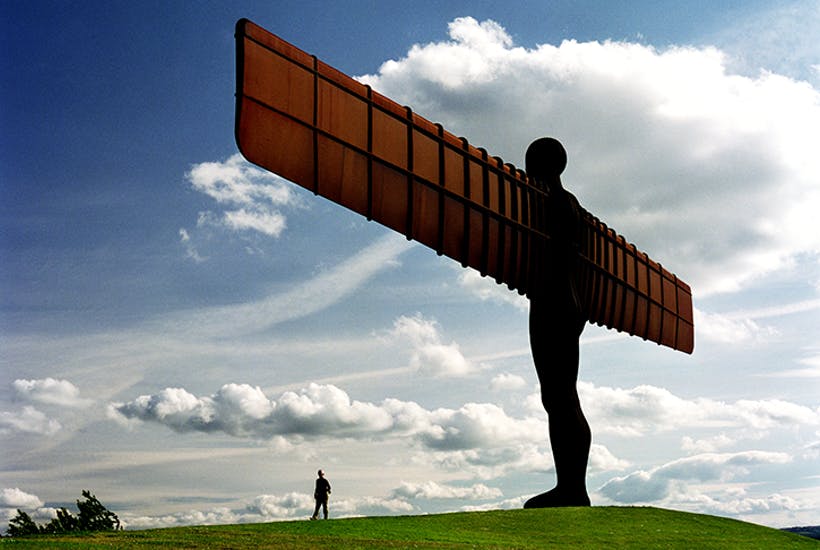Devolved or decentralised?
Sir: Paul Collier (‘Northern lights’, 22 February) conflates what devolution has come to mean, in UK terms, with decentralisation of authority. Thus it is adrift to imply that Edinburgh has benefited from a conscious decentralising of powers from central government. It was simply that Scotland as a whole got devolution and Edinburgh is its capital city, whereby it administers the devolved responsibilities. Until such time as commentators and politicians distinguish properly between devolution and decentralisation, they will continue to prompt fears that England could be balkanised rather than treated as a national entity on a par with Scotland. Situate its devolved English parliament and government in a more northerly latitude of England, with London becoming UK federal territory, and that will do more for the North and elsewhere than granting crumbs of local power to a few other cities.
Ken Stevens
Sonning Common, Oxfordshire
Sustaining networks
Sir: Douglas Murray believes that the BBC should be allowed to die if it fails to cater to his taste in high culture (‘How low can the BBC go?’, 22 February). How stark the contrast between this and his friend Roger Scruton’s wise guidance that we should instead sustain the networks of familiarity and trust on which a community depends for longevity, and that we must sometimes reform in order to conserve.
Richard Lyon
Edinburgh
The BBC is outstanding
Sir: As a faithful Belgian Spectator reader for years, my defence of the BBC does not spring from politics. English viewers may not be aware of it, because they are so used to the outstanding quality, but I can assure you that the BBC’s programmes are probably the best in the world and are an example for television makers all over the place. It would be a crying shame to try to muzzle the BBC, just because the news gathering and opinion programmes may seem to be a bit too progressive or independent for some people’s taste. The general public, not only in Britain, adore the BBC’s documentaries, sports programmes, the well-made drama, the quizzes and witty panel shows. Please don’t kill the goose with the golden eggs.
Paul Jacobs
Producer, Belgian radio and television (ret.)
Don’t forget Bragg
Sir: Like Douglas Murray, I no longer listen to BBC Radio 4 in the morning.
I now wait until PM to get my news from the excellent Evan Davies, whose forensic intellect is juxtaposed with sincere good manners, even if he does, on occasion, lose sight of the objectivity Lord Reith understood to be the principal requirement of a journalist. As for TV culture, I have to thank the Beeb for my improved mental health, as the plethora of dancing programmes, cookery programmes and house improvement programmes send me to bed early. However, there is one person, at least, whom Douglas Murray overlooks, and that is Melvyn Bragg, whose In Our Time programme has me delaying my start on a Thursday morning. He wastes no valuable air time at all promoting his own personality: just a ‘Hello’ and he’s off. He does not interrupt his well-picked guests, and he has an uncanny ability to listen like the audience does.
Dick Durham
Leigh-on-Sea, Essex
Good cops, bad cops
Sir: As someone who has had more than his fair share of cycling-related incidents, I sympathise with Lionel Shriver over her two-wheeler run-in with a copper (‘How I became an easy police target’, 22 February). I hope the following may encourage her: when a policeman stepped into my path in Camberwell and, upon my objecting, told me to ‘shut up’, I found the complaints procedure to be surprisingly efficient. I received an apology from his supervisor within a few weeks, and the man in question faced disciplinary action. When someone stole the wheels from my car in Hertfordshire, the police were, amazingly, able to catch the thief through DNA testing of some blood he’d left on the road. Conclusion? Some police are bad apples, some sympathetic and helpful — and sometimes you’re just bloody lucky.
Jon Frank
Greenwich, London SE10
Police reader
Sir: I was very sorry to read of Lionel Shriver’s recent ‘contact’ with the police. She was clearly treated with both a lack of respect and basic humanity. I do hope that she is now recovering from this unfortunate incident. Despite her assumption about the officer involved, perhaps Lionel can be reassured that there are police officers who do read The Spectator.
Richard List
Detective Chief Superintendent, Thames Valley Police, Aylesbury, Bucks
Penny purchases
Sir: Nigel Kavanagh-Brown gives sound advice on pence and pennies (Letters, 22 February). After all, the cry was ‘Penny for the Guy’. However my recollection is that in the 1960s, two essential accoutrements each cost a penny: unwrapped gobstoppers and rolls of percussion caps.
John Spencer-Silver
London SW11
Where’s Mr Wordsworth?
Sir: I’ve noticed Dot Wordsworth hasn’t mentioned her husband lately. I do hope he is well. Perhaps Dot could let us know?
Billy Nanner
Nottingham






Comments